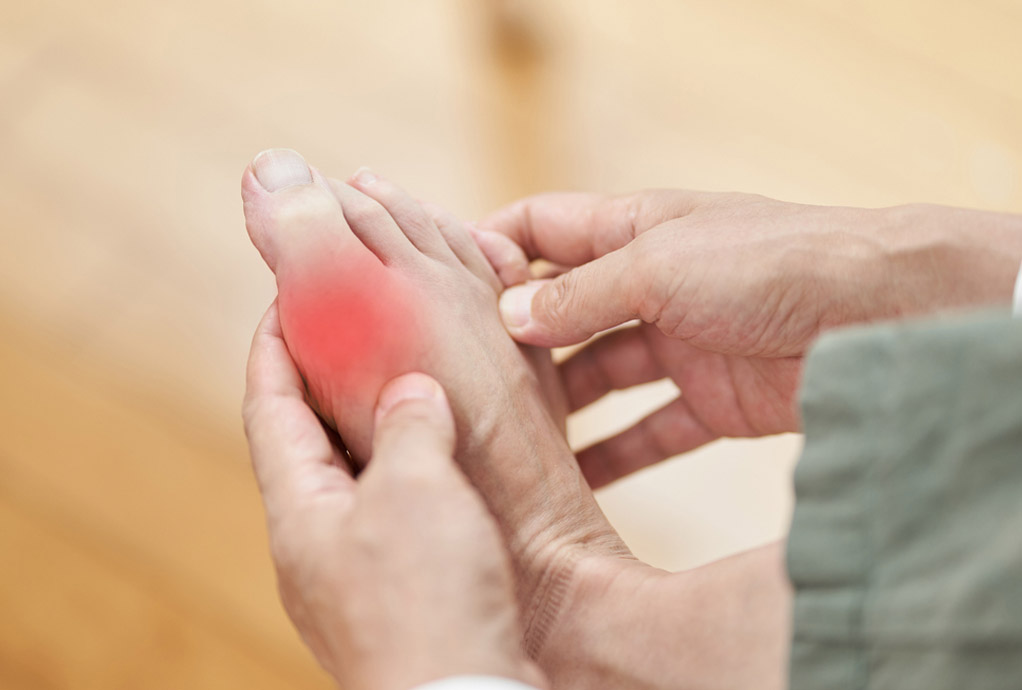
About 4.1% of Singaporeans suffer from gout, a type of arthritis affecting the big toe and other joints. In this condition, excess uric acid is present in the blood (hyperuricemia), which causes the development of tiny crystals within the joint. Uric acid crystals are known to cause severe pain, inflammation, and joint mobility problems. These may also develop beneath the skin and appear as lumps known as “tophi.”
Gout attacks, also called gout flares, cause severe joint pain that may lead to long-term complications, such as decreased mobility and chronic joint and tendon damage, if left untreated. Gout attacks can be managed through medication and lifestyle changes. In order to effectively manage gout attacks, the following pointers may be taken:
Take Pain Relievers
A common form of treatment for gout includes the use of anti-inflammatory medications for swelling and pain relief. When over-the-counter pain relievers do not adequately alleviate pain, patients must seek their doctor’s advice about other medication options.
Drink Non-Alcoholic Fluids
Keeping hydrated is a simple way to reduce gout symptoms by drinking eight to sixteen glasses of water each day. Fluid deficiency in the body may result in increased uric acid levels and joint discomfort.
Apply Ice to Affected Areas
Joint inflammation and discomfort may be reduced by using cold compresses. Apply an ice pack to the affected area (for no longer than 15 to 20 minutes at a time; and always keep a cloth between your skin and the ice pack) to relieve gout-related pain.
Elevate Affected Joint Areas
Another method of managing gout is to elevate the affected joint by using a pillow to raise it above the chest. In this way, pressure is eased and swelling can also be reduced.
Reduce Stress
Gout symptoms may be aggravated by stress, as high levels of stress is associated with increased uric acid levels. Exercising, meditating, or getting adequate sleep can help reduce stress.
Eat a Balanced Diet
It is helpful to lower uric acid levels and the risk of gout flare-ups by following a balanced and healthy diet. Taking a plant-based diet and eating antioxidant-rich fruits and vegetables can help reduce inflammation.
Avoid High-Purine Meats
Foods that contain high amounts of purines may lead to gout symptoms since they accumulate uric acid. When possible, limit the consumption of high-purine foods, including asparagus, cauliflower, red meat, sardines, mussels, scallops, and organ meats.







